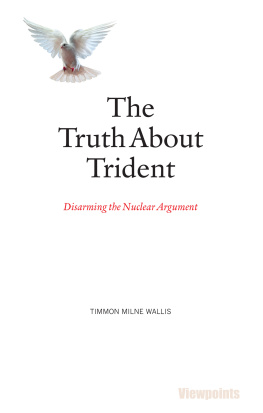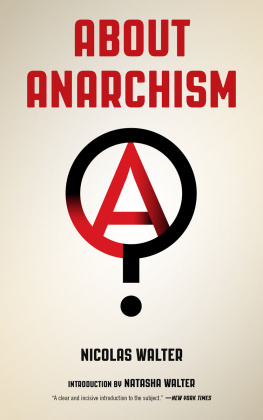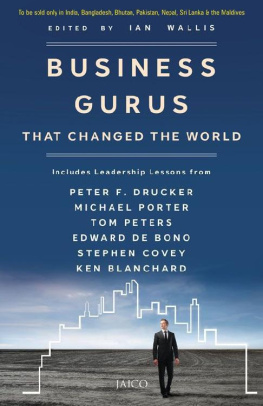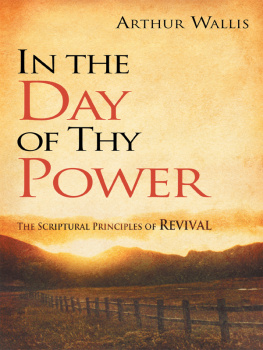Wallis - An Anarchists Manifesto
Here you can read online Wallis - An Anarchists Manifesto full text of the book (entire story) in english for free. Download pdf and epub, get meaning, cover and reviews about this ebook. year: 2020, publisher: Warbler Press, genre: Politics. Description of the work, (preface) as well as reviews are available. Best literature library LitArk.com created for fans of good reading and offers a wide selection of genres:
Romance novel
Science fiction
Adventure
Detective
Science
History
Home and family
Prose
Art
Politics
Computer
Non-fiction
Religion
Business
Children
Humor
Choose a favorite category and find really read worthwhile books. Enjoy immersion in the world of imagination, feel the emotions of the characters or learn something new for yourself, make an fascinating discovery.

An Anarchists Manifesto: summary, description and annotation
We offer to read an annotation, description, summary or preface (depends on what the author of the book "An Anarchists Manifesto" wrote himself). If you haven't found the necessary information about the book — write in the comments, we will try to find it.
An Anarchists Manifesto — read online for free the complete book (whole text) full work
Below is the text of the book, divided by pages. System saving the place of the last page read, allows you to conveniently read the book "An Anarchists Manifesto" online for free, without having to search again every time where you left off. Put a bookmark, and you can go to the page where you finished reading at any time.
Font size:
Interval:
Bookmark:
Acclaim for An Anarchists Manifesto
Anarchyfree cooperation among equalsis a principle of everyday life. It also shapes disobedient communities struggles against oppression, looking forward to a social order without rulers or classes. Glenn Wallis writes down to earth and up to the minute, a manifesto in the best tradition of Emma Goldman and Colin Ward. If you are not an anarchist (yet?)this book is for you.
Uri Gordon, author of Anarchy, State and Revolution and Anarchy Alive!
In this seductive stroll through the realms of philosophy, history, and everyday life, Wallis guides the curious toward a meeting with anarchyone of todays most powerful but maligned political convictions. Whether it leads you to raise a black flag or merely to raise an eyebrow, An Anarchists Manifesto will leave you with little doubt about which side youre on.
ak thompson, author of Premonitions: Selected Essays on the Culture of Revolt
G lenn Walliss anarchist manifesto is a gentle, undogmatic exploration of anarchist practice. It explains how an anarchist articulation of shared values can transform failing democratic institutions and unjust systems of organization. This is not a conventional manifesto: there is no elaborate policy program or list of empty promises. It calls for the recovery of an anarchist sensibility as the bulwark against relentless capitalist exploitation and corrupt, lawless government.
Ruth Kinna, member of the Anarchism Research Group at Loughborough University UK, former co-convenor of the Anarchist Studies Network and co-editor of the journal Anarchist Studies
Read this manifesto . Wallis convincingly argues that anarchism is an ungrand tradition of ordinary people engaging in concrete communism, practiced in societies against the state and as well as in exilic spaces at the edges of capitalism. These spaces are not somewhere else, they are everywhere around us, in the interstices of the dominant society.
Andrej Grubai, Professor of Anarchist Anthropology, CIIS-San Francisco
This lucid and incisive manifestoin the full force of the termprovides a clear articulation of anarchism: what it is, what it is not, and why it is our best chance at reclaiming our world from the ravages of capitalism, exploitation, and authoritarianism. Glenn Walliss An Anarchists Manifesto is unflinchingly committed to an anarchist worldview, a worldview in which anarchism as what Wallis calls a certain way of being engenders mutually aiding relations between people. Refusing hierarchy, oppression, coercion, and exploitation, An Anarchists Manifesto is concerned, first and foremost, with acting on and changing the world. This is not starry-eyed utopianism; this is anarchism, the way to a more just world.
Marquis Bey, African American Studies and English professor, Northwestern University
This engaging but scholarly book will appeal to both anarchist activists and readers curious about what anarchism can offer to contemporary political struggles. While not shying away from posing and exploring tough questions, Wallis offers his readers a wealth of intellectual resources and inspiring historical and contemporary examples of anarchist praxis. His impassioned manifesto both argues and demonstrates that anarchism is, above all, a way of being in the world.
Judith Suissa, Professor of Philosophy of Education, University College London, Institute of Education
Glenn Walliss Manifesto presents a powerful, eloquent, and eminently practical case for anarchism. This is a book that one could very usefully pass on to a neighbor, if that neighbor is inspired by values like love, respect, care, mutual aid, sharing, equality, and freedom. The book will win over many through its simple and profound message that anarchy is in no way alien to ordinary people, but is, rather, something that we find in the most admirable ideals and practices all around us. Wallis shows that a better world is possible because it is and has been quite actualat many points in history, in many places today, and most significantly, in our own lives.
John Clark, author of The Impossible Community: Realizing Communitarian Anarchism and Between Earth and Empire: From the Necrocene to the Beloved Community
An Anarchists Manifesto
Warbler Press
Copyright 2020 Glenn Wallis
.
isbn 978-1-7360628-2-1 (paperback)
isbn 978-1-7360628-3-8 (e-book)
warblerpress.com
An Anarchists Manifesto
GLENN WALLIS

I dedicate this manifesto to the memory of Peter Frank.
The free school that Peter created near Philadelphia in the 1970s was permeated by the values advocated in this work. As his student, I absorbed
those values. For that, my gratitude is boundless.
The impossible is the least that one can demand.
James Baldwin
Contents
1.
Are You Already an Anarchist?
When driving in traffic, do you take care to avoid accidents? What about in a grocery store? Do you navigate your shopping cart cautiously through the crowded aisles, and wait your turn (however impatiently) in the checkout line? Going through the security check at the airport can be very aggravating. Do you nonetheless inch forward with everyone else, place your shoes on the conveyer belt, and walk through the security station? If you do all of this not out of a sense of duty and deference or mere respect for the law, but because you desire to contribute to the smooth operation of the shared, collective task at hand, then you already cherish two central values of an anarchist way of life: order and cooperation.
Do you actively strive, wherever possible, to help out family, friends, neighbors, work associates, maybe even strangers? Would you expect the same from them if you were in need? Do you have this attitude not out of a sense of obligation, guilt, indebtedness, or quid pro quo insurance, but because of a sense of interdependent connection with others? If so, you already cherish the central anarchist value of mutual support.
Imagine that youre in a discussion, say, in a classroom with fellow students, around a dinner table with a group of friends, or at a conference table with colleagues at work. Do you believe that, in such situations, people are more likely to express their views in engaged, creative, and perhaps even bold ways if no overshadowing authority figure is present (for example, the teacher, a mansplaining male, the boss)? If you believe that groups of people are capable of intelligently determining matters on their own, without the need of a coercive figure, then you possess the crucial anarchist dispositions of being anti-authoritarian and anti-hierarchical, or, positively expressed, egalitarian.
Do you believe that all people should be granted every privilege and access afforded the most advantaged members of society? Do you believe that protection and dignity should be extended to animals? Do you believe that we should treat the environment with the utmost care? If so, you share the anarchist conviction that we must strive to eliminate all forms of domination.
On reflection, do you believe that the problems illustrated here are the result not merely of individual belief and behavior, but of larger structures, such as families, neighborhoods, schools, workplaces, economic systems, and society as a whole? For example, at the very moment I am beginning this text (summer 2020), more and more people are expressing the view that eliminating racism should no longer be considered a matter of changing peoples opinion about black people. Racism in America, this view goes, does not exist in this or that private head. It exists in a vast network of shared imageryon the internet, on television, in movies, advertising, the nightly news, and literatureoften extending back decades and even centuries: the black person as poor, uneducated, angry, violent, or sexually voracious. Racism exists in the damaging metaphors and tropes embedded in our ordinary, everyday, perfectly acceptable language usage: a dark mark on a persons reputation; the black stain of a nations history; a black soul, dark thoughts, dark humor, a dark future, a dark (metaphorical) cloud, a dark outlook or forecast, dark despair, a literal and figurative dark horse; black knight; blackguard; a dark political speech; the dark web (of illicit activity); the black sites set up as secret illegal interrogation sites for terror suspects; black market, blacklist, black out, black magic, blackball, blackmail, black sheep. While not all of these terms have roots in our racist past in the same way that darkey or black Barbie do, their invariably negative meanings contribute to racial stereotyping. We could continue in this fashion indefinitely. We could, moreover, perform the same kind of broad social analysis for patriarchy and misogyny, anti-LGBTQ views, and views toward animals and the environment. If you believe that such an analysis, and that only such an analysis, is capable of getting to the heart of the matter, than you share two essential, interrelated anarchist views: material structures have formative primacy over an individuals consciousness; and thus, to change the world we must first of all change these structures.
Next pageFont size:
Interval:
Bookmark:
Similar books «An Anarchists Manifesto»
Look at similar books to An Anarchists Manifesto. We have selected literature similar in name and meaning in the hope of providing readers with more options to find new, interesting, not yet read works.
Discussion, reviews of the book An Anarchists Manifesto and just readers' own opinions. Leave your comments, write what you think about the work, its meaning or the main characters. Specify what exactly you liked and what you didn't like, and why you think so.















